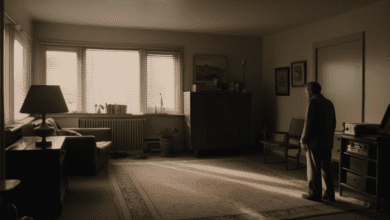How hotels can demonstrate their value over short-term holiday lets
By Giles Fuchs, the owner of Burgh Island Hotel

For the experiential traveller, where better to stay than the short-term holiday let, which offers the opportunity to live like a local would? That said, if an Airbnb happens to be your accommodation of choice, it’s unlikely that your neighbours will welcome you with open arms.
Having hit Britain’s coastal areas and countryside like a tidal wave, the number of Airbnb listings has increased by 40% over the last three years. Today, nearly half of all lodgings in certain areas – such as the parish of Mortehoe in North Devon – are second homes or holiday lets. While they may offer more flexibility for guests in terms of location, space, and activities, many holiday lets do little to support local communities, while they gradually take over towns and villages, and pricing locals out.
Tourism is vital to these local economies and represents 10% of all employment in Devon and 20% in Cornwall, so limiting access to Britain’s holiday hotspots would offer no relief. Instead, we must show visitors that no accommodation offers greater care, convenience, and access to the local community than the traditional hotel establishment.
Britain’s rural and coastal communities typically welcome tourists to their shores with open arms. However, the growing prevalence of short-term holiday lets has somewhat dampened the relationship. Far from a breath of fresh air, as demand for holiday properties grows, landlords have joined the ‘race for space’.
The Southwest has been one of the most severely affected areas by this, as a quarter of houses and flats in Woolacombe, Georgeham and Croyde in North Devon were listed on Airbnb in May 2022.
Unsurprisingly, Cornwall has seen the biggest rise in house prices nationally since 2019, having grown by a staggering 36%. This has priced many locals out of their communities in the process. As locals leave en masse, the community’s spirit, history and culture — vital to attracting guests to an area — departs with them.
During the winter months, these tourist thoroughfares become sleepy seaside towns, and as the number of permanent residents dwindle, so too do the services available. With fewer attendees, community facilities such as town halls, clubs, and childcare services face closure, as do the hospitality and retail establishments now reliant on seasonal tourism to keep their shutters raised.
But these summer hotspots offer so much more than sand and sea. To preserve their communities, hotels must seek ways to attract guests come rain or shine. That said, communities cannot survive on hospitality alone; the rapid rise of Airbnb has forced many residents to shift careers to work in tourism, leaving industries such as fishing, farming, and mining, as well as key community businesses such as pharmacies and supermarkets, which are struggling to fill roles.
The outcome? Fewer transport links, shops, and community hubs, making life difficult and expensive for those that stay behind. That’s why, at Burgh Island, we have gone to great lengths to preserve local industries, sourcing our fresh produce from neighbouring farms, partnering with resident artists, and frequently shuttling guests back and forth from the mainland.
An eco-opportunity short-term lets — a home away from home — certainly have their charm. However, we should not let this overshadow the concerns of residents. It’s up to hotels to provide a remedy that protects local communities while making our establishments the more attractive choice for visitors.
With 69% of travellers actively seeking sustainable options, this is one area where hotels can improve. The sector currently accounts for about 1% of global carbon emissions. While its social impact is far more positive than short-term holiday lets, hotels must do more to be environmentally sustainable. Such practices not only protect local communities and ecosystems from environmental harm, but also bring the growing number of carbon-conscious holidaymakers not just to our own doors, but to those of local businesses and services too.
The rise of holiday rentals should provide impetus for hotels to evolve and demonstrate why they should be holidaymakers’ first choice this summer. That starts with re-establishing the sense of community that has been lost with the rise of short-term holiday rentals. Hotels are so much more than a place to sleep — they’re a place for tourists and locals alike to come together and enjoy Britain’s most beautiful, historical and culturally rich settings.









